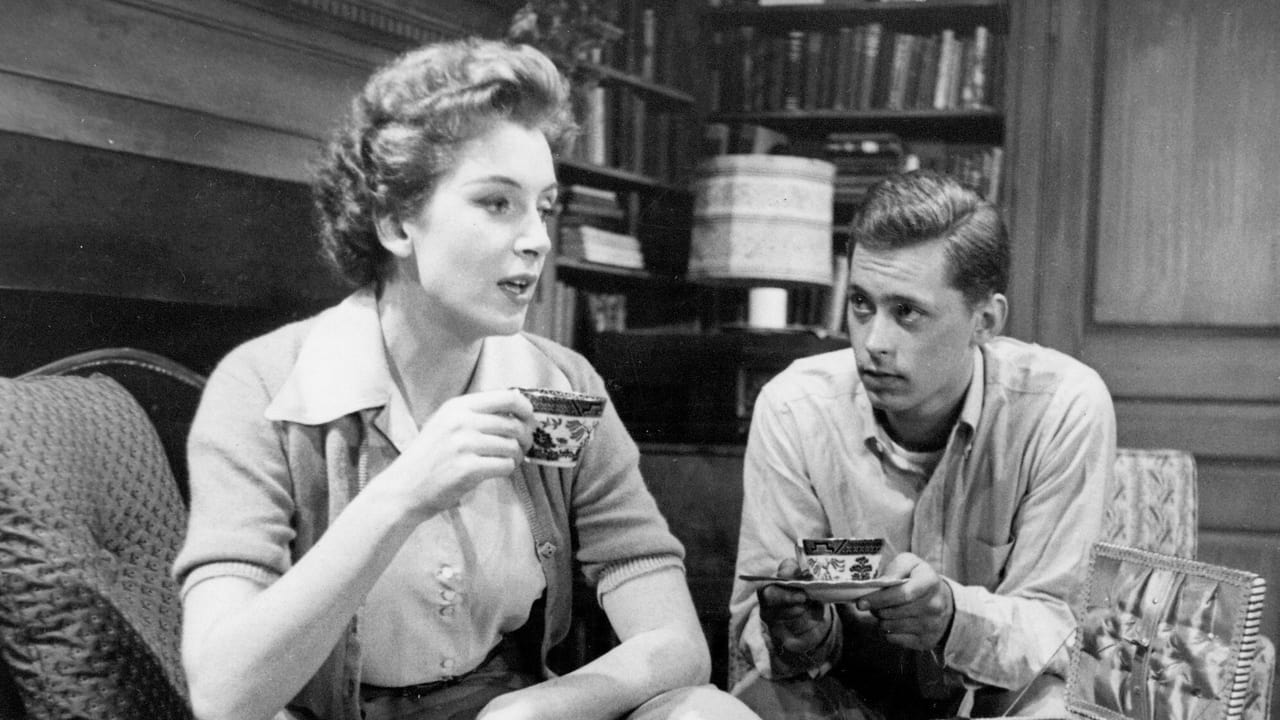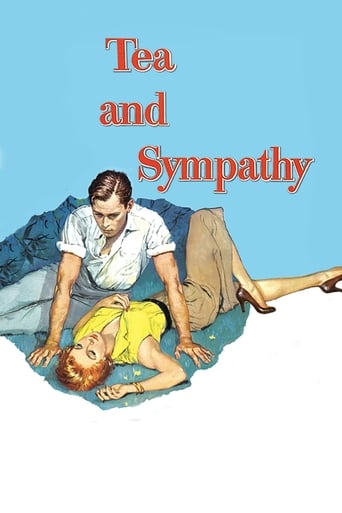



Expected more
Too much about the plot just didn't add up, the writing was bad, some of the scenes were cringey and awkward,
View MoreIt's easily one of the freshest, sharpest and most enjoyable films of this year.
View MoreOne of the best movies of the year! Incredible from the beginning to the end.
View MoreAs a child in the 1950's and then as an adolescent and teenager during the 60's, I have many mixed feelings about the era. I loved the music, many of the movies, the "Golden Age of Television" (which lured me away from despised homework assignments each and every night), the relative safety, especially for a kid, and the uncomplicated simplicity of the times. What I don't miss, however, are the oppressive, narrow-minded stereotyping and the stifling social conformity that were so prevalent during that period. So what if you occasionally or even frequently enjoyed your own company and wanted to listen to phonograph records by yourself or, on impulse, even hopped the Number 8 bus to downtown Elizabeth, New Jersey where there were no fewer than four different movie theaters on the same block from which to choose, a really big deal at the time. I didn't find this movie dated at all. Not only does it offer a glimpse of what life was like in the 1950's, which should have some historical significance to younger folks today, but its message regarding the enslaving circumstances of rigid social conformity is ageless. Although it is obviously a stage adaptation, praise goes to director Vincente Minnelli for so vividly bringing it to the wide screen. The three leads, Deborah Kerr, John Kerr (no relation), and Leif Erickson, who all revived their original Broadway roles, were exceptional. I also loved the scene when Al (Daryl Hickman), Tom's socially pressured roommate, attempts to provide Tom with tips on how to appear more manly to the world. Norma Crane, who wonderfully played Golde in the film version of "Fiddler on the Roof", perfectly portrayed a very "unsympathetic", if not nasty, Ellie Martin. Ironically, Edward Andrews depicted Tom's demanding father as anything but manly, perhaps intentionally. Be as I say, Tommy, not as I am. While Tom at first appeared to be the focus of the film, the stories of Laura and Bill Reynolds, the dorm house parents, slowly begin to overshadow Tom's miserable situation. This amounted to some excellent work by screenplay writer Robert Anderson, who also wrote first-rate scripts for "The Nun's Story", "The Sand Pebbles, and "I Never Sang For My Father." And what is Bill Reynolds doing at the end of the movie? Listening to phonograph records by himself. Heaven's to Betsy! What's the matter with him? My only criticism is that it ran a bit long and could have been reduced in length without losing its powerful impact.
View MoreThe reviews here of this film are either very supportive of the film, or very dismissive of the film. I was pleased to see more that are supportive, but unfortunately there are quite a few people out there that just don't get it.In age where over a dozen states now have gay marriage, it is virtually impossible for anyone younger than -- well, let's say 50 -- to understand the time which this film depicts. Stonewall was 16 years in the future. The vast majority of gay men were totally closeted. You cannot compare the gay world of 1956 with the gay world of 2013. This film takes place in the era when men were (supposed to be) men. Many people were so dense about gay life that they couldn't conceive of Liberace being gay (and this play came about just as Liberace was coming into our living rooms every week); but few "saw" it...or wanted to see it...or wanted to admit it. So for those of you who want to put down this movie as being unrealistic...it wasn't that unrealistic in the mid-1950s. In fact, for its time, this was a rather daring film, and apparently had difficulties with the motion picture production code.It's very easy to attribute some of the film's misguidedness to the stereotypes that we see here. But, often stereotypes become so because of a degree of accuracy. The young man depicted in this film is marching to a different drummer, at a time when not many people did. The most interesting question the film brings up -- and doesn't answer -- is whether or not the young man was actually gay. It seems as if he was, or perhaps he was just not ready to take on an active heterosexual life. Perhaps he was closeted. It's ambiguous. The father's attitudes are not that off-base when you consider that the character was born not long after the turn of the last century! Get a little historical perspective. If there is one character here who is outlandish, it's probably Leif Erickson's coach-role...dripping with testosterone, when it really makes him and the other "boys" look too involved with guy-stuff. Deborah Kerr here is so good...as some have pointed out, a little stage-play-ish...but I guess that was to be expected after having played the role on Broadway for so long. In fact, there are some problems with her character...getting overly involved and overly mothering. Personally, I thought John Kerr...well, either he was overacting in some of the most psychological scenes, or he was falling back on the way one has to act on a large stage in a huge theater. Edward Andrews...well, as the father I guess he was supposed to be smarmy...and he certainly was. It was nice to see a more adult Darryl Hickman; for my money, Hickman was the finest of the child actors of the whole era, but as a young adult he wasn't as convincing.I'm glad I watched this film, but that's not to say that I didn't find it just a bit tedious. It was probably a bit overly long, coming in at over 2 hours. I can't say this was Vincente Minelli's greatest accomplishment as a director. But if you want to get a little historical perspective on the issue of gayness in the old days, this may be as good as anything else out there.
View MoreI was touched by this excellent film about a sensitive young man, Tom attending his tenth college reunion and reflecting on his difficult freshman year. He attended a school that his manly father attended before him. Tom was a talented tennis player and singer with ambition to follow a "different drummer" - to be a folk singer; a calling of which his father disapproves.Tom's father, his fellow students and professor/house father bully and gossip about Tom for such things as sewing with the professors' wives and playing tennis rather than participating in more manly things. They call him names such as Sister Boy. Tom is not gay, but a sensitive virgin who has yet to find himself. He has a longing for true love in a world of macho mean men with their locker room bragging. The neglected wife of the professor/house father alone understands and sympathizes with Tom.This movie reminds us that bullies are small minded people who have always been around and unfortunately probably always will. Hopefully, the bullies of the world and those who don't fit into the so called "in crowd" will see themselves in this film and become better as they learn from the film.In my opinion, the world would be a most boring place to live if everyone were the same. This film is a great lesson on understanding others. I want to watch it again soon and share it with friends and family.
View MoreMiss Kerr's cold archness, as always, makes grace Kelly or Maureen O'Hara look like Marlene Dietrich in comparison, and the young Kerr lad is unwatchable. I found the merest hints at the coach's homosexuality incredibly hot and would have loved to see the play's original version here. woof! and I don't think the son's father gets away with a fully str8 Kinsey rating either. do his father and the coach have history? :) And to Matthew's comment above: "His avoidance of close-ups reveals him to be, in this case at least, what feels to me like a very selfish director. "Quite simply, Cinemascope is "not kind" to closeups.
View More